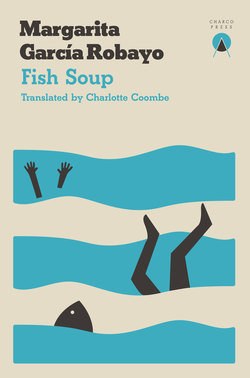Читать книгу Fish Soup - Margarita García Robayo - Страница 9
На сайте Литреса книга снята с продажи.
Оглавление3
There was a time when the weather completely changed. It rained all the time, every day it rained. That was bad for the ground because it got eroded; bad for the sea, because it got rough; bad for the TV because it lost signal. We still had the radio. The radio said that the city was going through a tragic situation; not in the modern parts, where the rich people lived, but in the shantytowns around the banks of the Ciénaga de la Virgen lagoon. Because it was full of crap, it overflowed, and the flimsy houses sank into the mud. It was around that time that people started talking about the Submarine Outfall, a metal pipe that would swallow all the shit built up in the Ciénaga, carry it out to sea and spew it out. It was the solution to all the city’s problems. They hadn’t built it yet because there was no money, and there was no money because it had been stolen. Who by? Nobody knew. On the radio everyone was talking about it. After that came the romantic programmes, playing a top ten of songs about rain.
One day during that time, I dreamed that the wind carried off my brother and his friend Julián, who he used to go to the gym with. They were whisked away, clinging to one another, their teeth gritted like when they flexed their muscles in front of the mirror. I watched them float higher and higher until I couldn’t see them anymore. Another day, I dreamed that the wind blew away Willy’s kiosk: he sold beers near Gustavo’s shack. Willy hated me because one day I kicked a pig in the head as it was snuffling around my feet. The pig ran off, terrified and squealing like an old woman, and I laughed. Willy got angry: you’re evil, he told me. And I told him he was a black bastard. Gustavo grabbed me by the wrist and twisted my arm. I wrenched myself free and ran off. I didn’t go back for months.
We had arrived at the kiosk half an hour before that, after a long walk on the beach. I’d been talking to Gustavo about Maritza Caballero, who’d sent me a postcard from Medellín, and a photo of her in the mountains; she was wearing a blue hoodie. I’d never worn a hoodie. I was thirsty, and Gustavo said, let’s go to Willy’s kiosk. He ordered an Águila beer for him, and a Coca-Cola for me. We sat on stools at the counter, and Willy started talking about a cruise ship full of gringos that had just come in. He said he was waiting for Brígida, the black fruit-seller who wore bright dresses. They were going to town to flog things to the gringos: beer, rum, shell necklaces. Got any oysters, boss? Willy only called Gustavo “boss” because he was white and a foreigner. Gustavo never tipped him, and even spat on the ground sometimes, but Willy still called him “boss”. That day, however, a black fisherman turned up, ordered a beer and after the first sip, let out a huge belch. Willy said to him: didn’t your mother teach you any manners, you black bastard?
The rain was also bad for my family, because the sewer pipe near our house overflowed, the pavements turned green and the air stank to high heaven. My dad lost a taxi: it filled up with water, right up to the engine, and had to be scrapped. That time, he sat everyone down around the table and declared: now we are poor, and started to cry like a little child. I looked around: my brother was checking his watch impatiently, because he was supposed to be going to the cinema with Julián and two women from Bogotá they had picked up at La Escollera. My mother was folding handkerchiefs, deep in concentration. Next to her was a wicker basket full of faded underpants and a load of single socks tangled up in a ball.
Being poor was exactly the same as not being poor. There was nothing to worry about.
